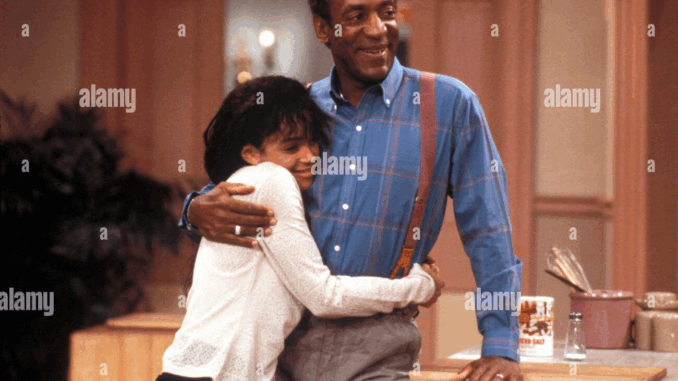
Long before Modern Family redefined the sitcom format and Black-ish put race and identity back at the forefront of primetime TV, there was The Cosby Show. Premiering in 1984, the sitcom didn’t just dominate ratings—it quietly rewrote the rules for how families, especially Black families, were portrayed on screen.
More than three decades later, its DNA is still visible across modern family comedies and dramas alike. This article explores how The Cosby Show’s pioneering legacy continues to shape how television tells stories about family, love, and identity.
Breaking the Mold: The First Family That Looked Different
Before the Huxtables, most TV families followed a familiar template: white, suburban, traditional. The Cosby Show was a revolutionary departure—not only was it centered on an upper-middle-class African-American family, but it also avoided falling into stereotypes. The Huxtables were smart, funny, flawed, and complex—just like real people.
This nuanced representation helped lay the groundwork for shows like Black-ish, The Bernie Mac Show, Everybody Hates Chris, and Fresh Prince of Bel-Air—series that offered varied, authentic glimpses into Black family life with humor and emotional depth.
A Blueprint for Storytelling
What made The Cosby Show special wasn’t just who it showed—it was how it told stories. The sitcom was clean, heartfelt, and often used comedy to explore real issues: parenting struggles, peer pressure, adolescence, and even race and gender—though often subtly.
This storytelling blueprint—using humor to explore deeper truths—would later be adopted by series like:
-
Black-ish, which blends comedy with bold social commentary
-
This Is Us, which combines emotional depth with multi-generational family storytelling
-
Modern Family, which mixes family chaos with warmth and relatability
All of them owe a debt to The Cosby Show’s formula of heart-meets-humor.
Mentorship On and Off-Screen
The show didn’t just influence audiences—it shaped the television industry from within. Many Black writers, producers, and actors cite The Cosby Show as their first inspiration. Its success opened doors in Hollywood that had long been closed to creators of color.
Actor and creator Kenya Barris, the mind behind Black-ish, openly credits The Cosby Show for teaching him how powerful television can be when it reflects its audience in honest, aspirational ways.
A Complicated Legacy
Of course, no discussion of The Cosby Show is complete without acknowledging the cloud cast by Bill Cosby’s criminal convictions. For many, the show’s cultural importance now sits uncomfortably beside its creator’s fall from grace.
Yet even amid the controversy, the show’s influence remains undeniable. The families we see on screen today—diverse, imperfect, relatable—exist, in part, because the Huxtables came first.
Conclusion: The Sitcom That Started It All
The Cosby Show may be a product of the past, but its legacy is stitched into the fabric of contemporary television. From the way families are written, to how sitcoms balance humor and depth, the show set a gold standard that still echoes today.
In a media landscape constantly evolving, The Cosby Show remains a defining chapter in the story of television—a chapter that continues to inform, inspire, and challenge the shows that follow.